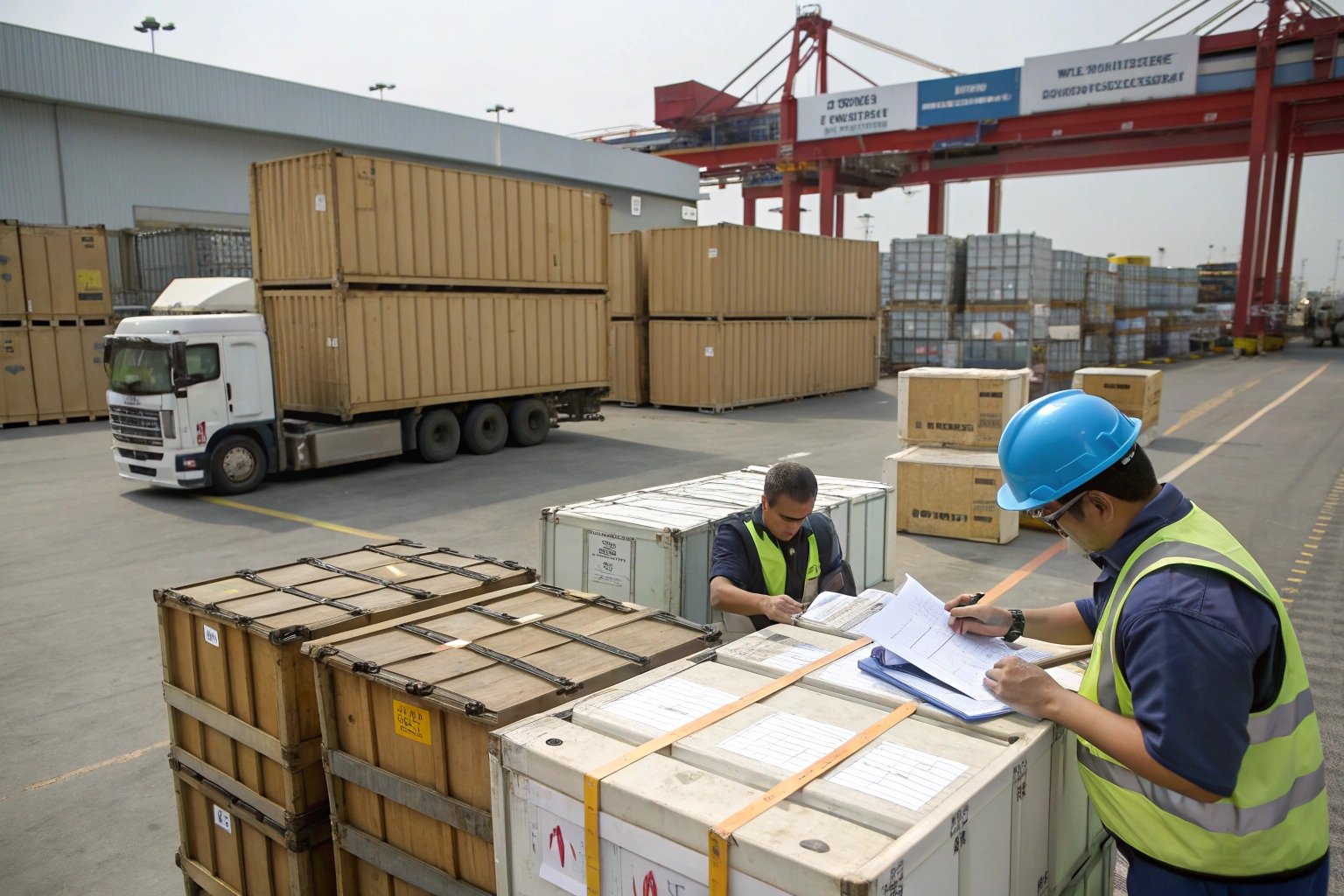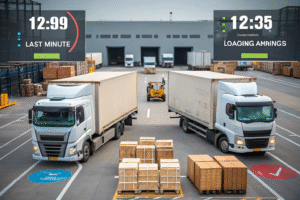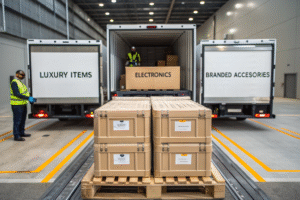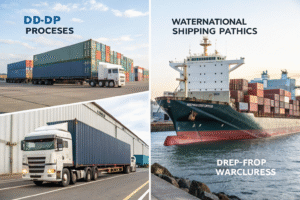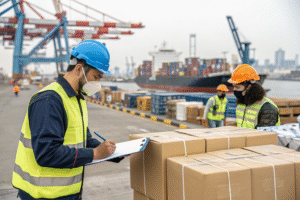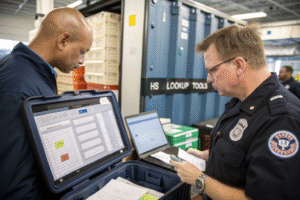Are freight forwarders just shipping coordinators, or is there more beneath the surface?
Freight forwarders provide a wide range of services beyond shipping, including customs clearance, warehousing, cargo consolidation, insurance handling, and full documentation support. These services simplify international logistics and protect your business from costly disruptions.
In my experience running GeeseCargo, I’ve found that most importers only discover the true value of a forwarder after running into a shipping crisis. Let me show you everything we actually do behind the scenes.
Do forwarders assist with customs clearance and compliance?
Customs clearance is often the most stressful and error-prone part of international shipping.
Yes, freight forwarders help you navigate customs regulations, prepare correct documentation, classify products properly, and ensure your goods clear borders without delays or penalties.

Why is customs clearance so tricky for importers?
Each country has its own rules, and a simple mistake in classification, paperwork, or timing can lead to hold-ups or fines. I’ve seen shipments detained for days due to a mismatched invoice or wrong HS code.
Here’s what we do for our clients at GeeseCargo:
- Submit Importer Security Filings (ISF) for U.S. shipments
- Ensure proper HS codes for accurate duties
- Prepare and file commercial invoices and packing lists
- Coordinate with customs brokers and port authorities
- Handle sudden customs inspections and respond fast
What’s the risk of not using a forwarder for compliance?
A client once tried to handle U.S. customs solo for a shipment of metal accessories. A small error in the declared product name triggered a CBP investigation. The shipment was delayed for 21 days. If we had handled it, it would've cleared in 48 hours.
Can they offer warehousing and cargo consolidation?
Warehousing isn’t just about storing goods—it’s about control and flexibility.
Yes, most experienced freight forwarders offer storage solutions, cargo consolidation services, and value-added warehousing operations like labeling, kitting, and order splitting.
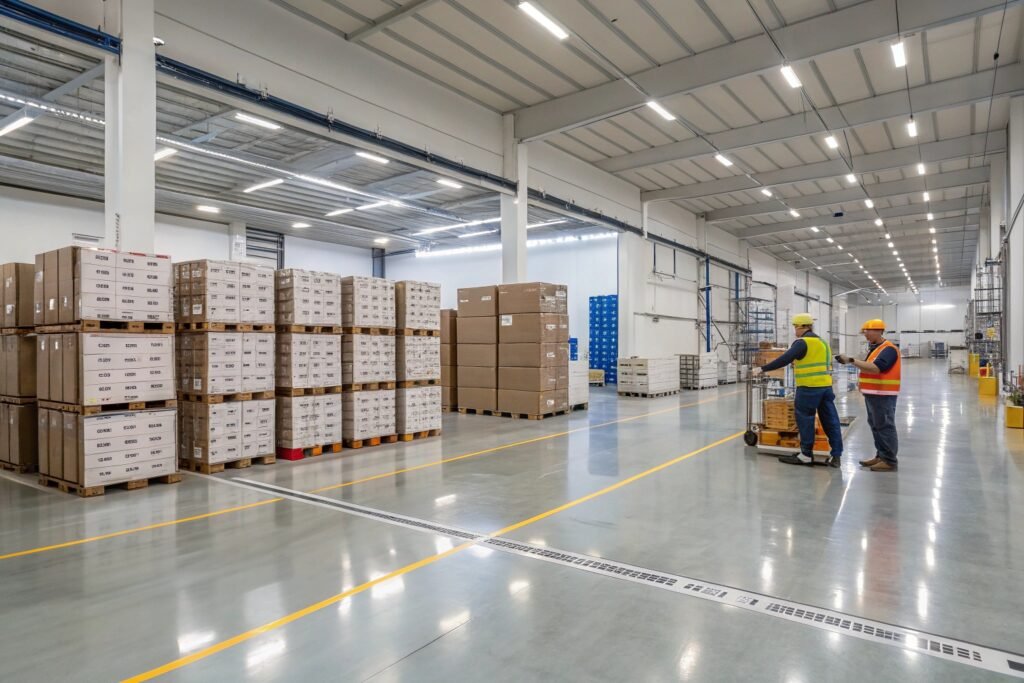
What are common warehouse and consolidation services?
| Service Type | Description | Benefit |
|---|---|---|
| Temporary Warehousing | Short-term storage for pending shipments | Reduces pressure to ship fast |
| Cargo Consolidation | Combine multiple suppliers' goods into one shipment | Cuts costs and handling risk |
| Pick and Pack | Labeling, sorting, and packing for e-commerce or retail | Enables faster fulfillment |
| Cross-docking | Transfer from inbound to outbound without long storage | Saves time, minimizes handling |
| Bonded Warehousing | Storage before duty payment for international clearance | Improves cash flow management |
How did consolidation help one of our clients?
One apparel importer in New York sourced from 5 Chinese factories. We picked up cargo across 3 cities, consolidated into 1 FCL shipment, and delivered straight to their warehouse. They saved $2,300 on shipping and avoided customs chaos.
What value-added logistics services do they provide?
Freight forwarding isn’t just about moving boxes. It’s about moving business forward.
Modern freight forwarders offer value-added logistics like supply chain planning, vendor coordination, tracking dashboards, and flexible last-mile solutions—especially helpful for B2B brands and Amazon sellers.

What are the most useful value-added services?
| Service | Purpose | Client Benefit |
|---|---|---|
| Vendor Coordination | Align schedules with factories and suppliers | Prevents shipment timing issues |
| PO Management | Track multiple orders from different suppliers | Improves shipment accuracy |
| Final Mile Delivery | Organize delivery to destination warehouse or FBA | Saves local logistics effort |
| Shipment Visibility Tools | Real-time updates and ETA forecasts | Enables proactive planning |
| Returns & Reverse Logistics | Handle damaged or returned goods across borders | Reduces hassle and cost |
How do these services build long-term trust?
Many clients who started by only booking freight with us now rely on GeeseCargo to manage entire supply chains. Why? Because when we help optimize inventory movement and cut hidden costs, they see us as a logistics partner—not just a shipping vendor.
Do freight forwarders handle insurance and documentation?
Shipping without proper paperwork or insurance is like sailing without a compass.
Yes, forwarders help with complete document preparation and cargo insurance, ensuring shipments comply with legal standards and are protected against damage, loss, or theft.
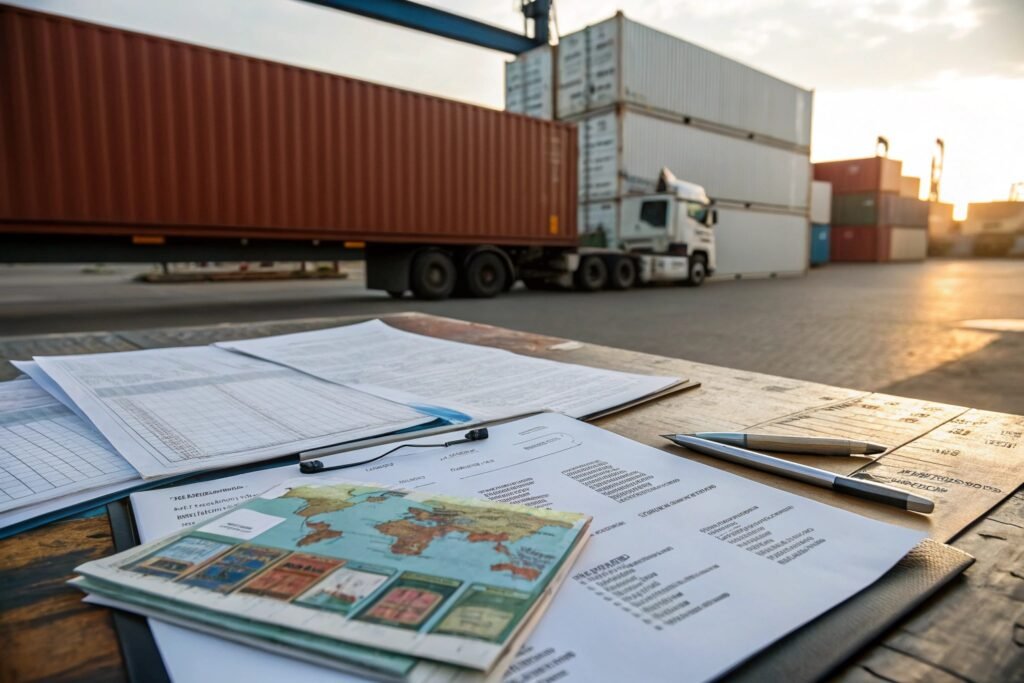
What documents do forwarders typically handle?
| Document Type | Purpose |
|---|---|
| Bill of Lading (B/L) | Acts as the shipment’s legal contract |
| Commercial Invoice | Declares product value for customs |
| Packing List | Lists package details for verification |
| Certificate of Origin | Proves country of manufacture |
| Import/Export Licenses | Ensures legality in destination countries |
We always double-check every document for accuracy before shipment. One time, a small typo in a packing list held up a medical accessory shipment in LA. We refiled documents in under an hour and released the container same-day.
What kind of insurance support do we offer?
At GeeseCargo, we:
- Recommend insurance based on cargo value and risk
- Provide All-Risk or Total Loss coverage
- Handle claim processes if damage occurs
- Work with global underwriters for credible coverage
Just last quarter, a container of high-end watches got flooded at a European port. Because we had arranged cargo insurance for the client, their $80K claim was fully covered.
Conclusion
Freight forwarders do more than book space on ships. From customs to consolidation, from warehousing to insurance, companies like GeeseCargo are here to protect your cargo, simplify your logistics, and power your business growth.
